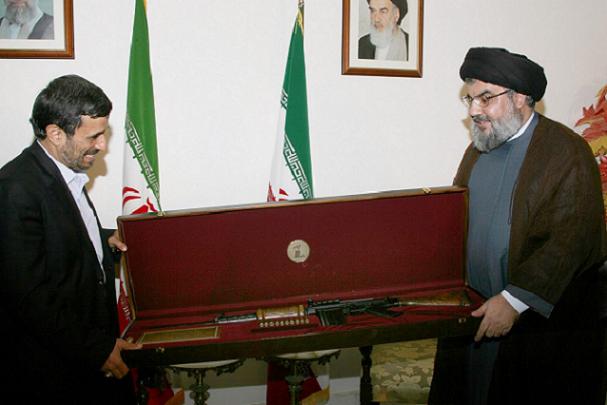From Bad to Worse: grim prospects for peace in the Levant
New in Ceasefire - Posted on Sunday, January 30, 2011 0:00 - 0 Comments

By Chris Bowles
2010 was not a good year for the pursuit of peace in the Levant. May saw the attack on the international aid convoy seeking to break the Gazan siege which left 9 dead and seriously questioned Israel’s judgement in handling opposition.
Observers in November then witnessed the US sponsored peace process fall into tatters as the moratorium on settlement building lapsed. The embarrassing overtures of the Obama administration, including an offer of stealth fighters and a commitment to oppose any UN resolutions critical of Israel, were effectively snubbed, and hopes for future Palestinian-Israeli negotiations have been postponed indefinitely.
For many, the crisis surrounding the resolution of Palestinian nationality may be a secondary concern in the future of Levantine stability. 2011 is likely to see an escalation of the already fraught climate within neighbouring Lebanon.
The embattled premiership of Saad Hariri faces increasing conflict as the Special Tribunal for Lebanon nears its politically charged verdict. Administered by the UN at the Hague, the tribunal was established to investigate the circumstances surrounding the bomb which killed Saad’s father and political predecessor, Rafik Hariri, in 2005. Expected to be concluded towards the end of last year, the findings are now likely to be presented on the 15th January.
There have been several strong hints that the conclusions reached are likely to implicate members of the militant Shiite party, Hezbollah. Hassan Nasrallah, the leader of the group, has repeatedly denounced the tribunal as a mere “American-Isareli” ploy to incite sectarian conflict within Lebanon. He has refused to recognise its jurisdiction and demanded that Hariri distance himself and condemn it before its indictment is published. Hariri has so far failed to heed the threats.
The developing political crisis in the country exposes wider sectarian divisions in the state which threaten to rapidly destabilise it. The politically dominant and vastly over-represented Marronite Christians have been split down the middle, half supporting Hariri, whilst the other half side with Nasrallah. The historically disenfranchised and under-represented Shiite population has also lent its rising power towards the quasi-political force of Hezbollah.
The inability of Lebanon’s political institutions to encourage anything greater than identity-politics and dialogue couched in ethno-centric vocabulary, is undermining the larger state. Countries whose structures collapse characteristically attract extra-political forces seeking to capitalize on the political vacuum. Histories of Afghanistan, Yugoslavia and the Congo all reveal the dangers for the people when these agents are permitted access to the political field.
Quite apart from the internal challenges by Hezbollah, Lebanon is increasingly exposing itself to the competing agendas of its neighbours. Saudi Arabia and Syria have attempted to broker a settlement between the two divided Lebanese camps in order to neutralise the effects of the tribunal’s judgements and prevent violence. The status of these two states as emissaries of opposing ideological forces in the region though, threatens to caste Lebanon as a battlefield. Saudi Arabia represents the head of Arab states allied with the United States, whilst Syria acts for the Iranian Connection and “the resistance” against Western/Israeli influence.
The Special Tribunal is a promising tool for the United States, and one it is unlikely to cast aside as it searches for a means of reviving its failing reputation in the region. The likely indictment of Hezbollah members in Rafik Hariri’s assassination would be a conclusive blow to the Iranian alliance. Saad Hariri is a pivotal figure in the developing drama as his familial connections make him far less likely to yield to Hezbollah pressure and denounce the findings. However, the greater the odds stacked against Hezbollah, the more violently they will make their case that the entire saga has been rigged as a “Western-Zionist plot”.
Any verdict against the Shiite militant group will be used by both sides to justify further entrenchment of their positions, leaving the Lebanese people to suffer the consequences of the ensuing battle.
Though the character of future conflict in Lebanon may be unclear, its coming seems almost certain. Its weakened political institutions bear all the hallmarks of a failed state, and the ignominious surrender to external mediators with competing agendas opens the gates to proxy clashes.
Chris Bowles is a freelance journalist on Middle East politics and current affairs.


Leave a Reply